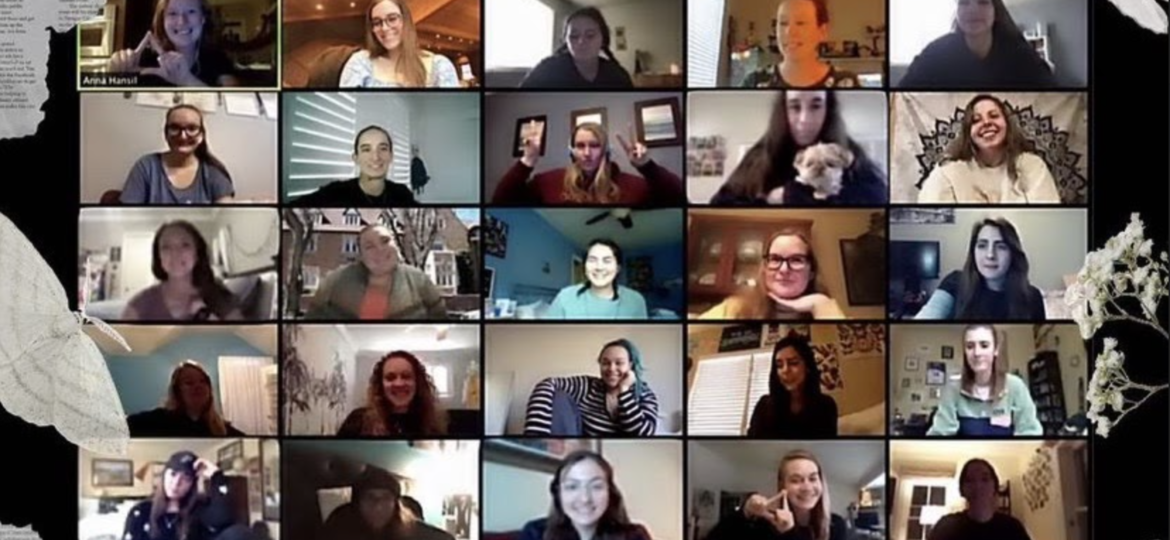
CU student organizations adapt to online engagement due to the pandemic
By Alisa Meraz-Fishbein
With campus closed and classes forced online due to the pandemic, students crave social interaction more than ever. However, the threat of contracting and spreading coronavirus has drastically altered the way in which students interact. Existing student groups try their best to remain unified, with technology at the forefront of this connection.
Greek Life
For sororities at the University of Colorado Boulder, social interactions among sisters and the community – both benchmarks of sorority life – can not resume in-person.
Maya Nissenbaum, a sophomore member of Gamma Phi Beta, says in-house living has been the most significant change for her experience. Members must wear masks outside their rooms, get their temperature checked and receive COVID-19 tests biweekly. Additionally, guests are not allowed, including members who do not live in the house.
“Not being able to have other sisters over was a huge change because that was where we would all congregate and connect,” Nissenbaum said.
However, Gamma Phi Beta found alternatives to promote connectivity. They continue to hold weekly chapter meetings on Zoom and have sisterhood events either online or outside in small groups.
Anna Hansil, a junior member of Tri Delta, mirrors Nissenbaum’s sentiments. Like other sororities, Tri Delta is taking advantage of technology. “We still do virtual sisterhood events. We’ve done a virtual Bob Ross painting class, iPhone tournaments and movie nights over Zoom,” Hansil said.
Hansil keeps a positive outlook on her situation despite the challenges. “I feel much closer to my friend group in the sorority,” Hansil said. “We’ve all latched on to each other and have been able to help each other through this pandemic.”

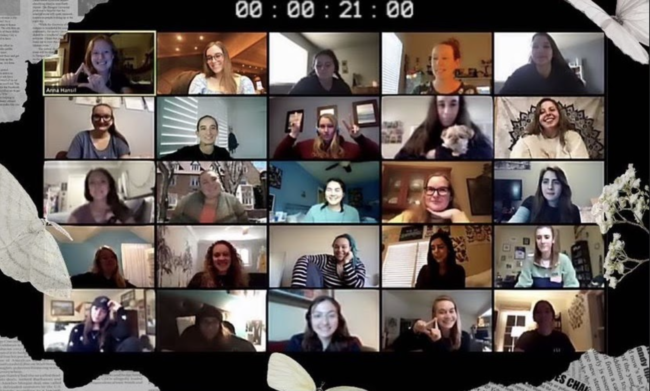
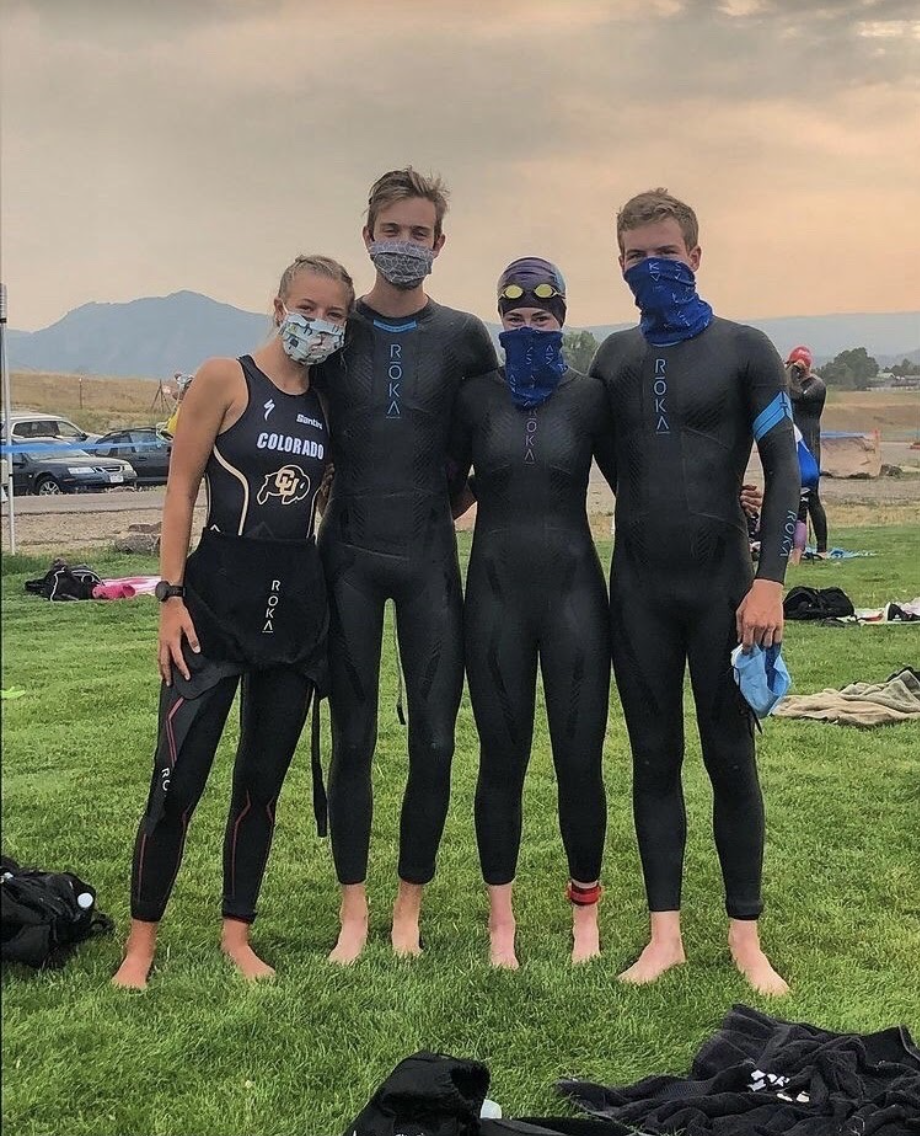
Club Sports
Unlike Greek and other campus organizations, it is trickier for sports clubs and teams, where in-person participation is vital.
CU Triathlon’s 2020 spring conference and national competitions were canceled in precaution around COVID-19 health and safety concerns. Adam Bradshaw, a senior at CU and vice president of the Triathlon team, explains the cancellations were difficult, though the team remained hopeful. Over the summer and into early fall, the team held small practices, abiding by state and county regulations. But yet again, things were shut down at the end of September 2020.
“We never went back after that and haven’t been back to in-person practices since,” Bradshaw said. “Since September, things have been glum and sad.”
Brandon Wallace, senior team conference commissioner, said that the team’s 2021 spring regional competition was canceled and the national competition will likely be canceled as well. He added that the lack of opportunity to compete has caused stress and uncertainty.
The team lost the most important competitions of the season and the opportunity for socializing and cultivating team comradery. Pre-coronavirus, a group of roughly 50 cyclists trained together almost daily.
While facing adversity, the team remains unified. In late November, they entered the USA Triathlon “Virtual Tri Across America,” where registered teams competed to log the most cumulative biking, swimming and running miles over a month. The Colorado team placed 12th out of 188 teams.
Bradshaw feels the competition was beneficial for the team, keeping their athletes engaged in the sport and hopeful for the future. “It got a lot of people off the couch because they had something to work toward,” he said.
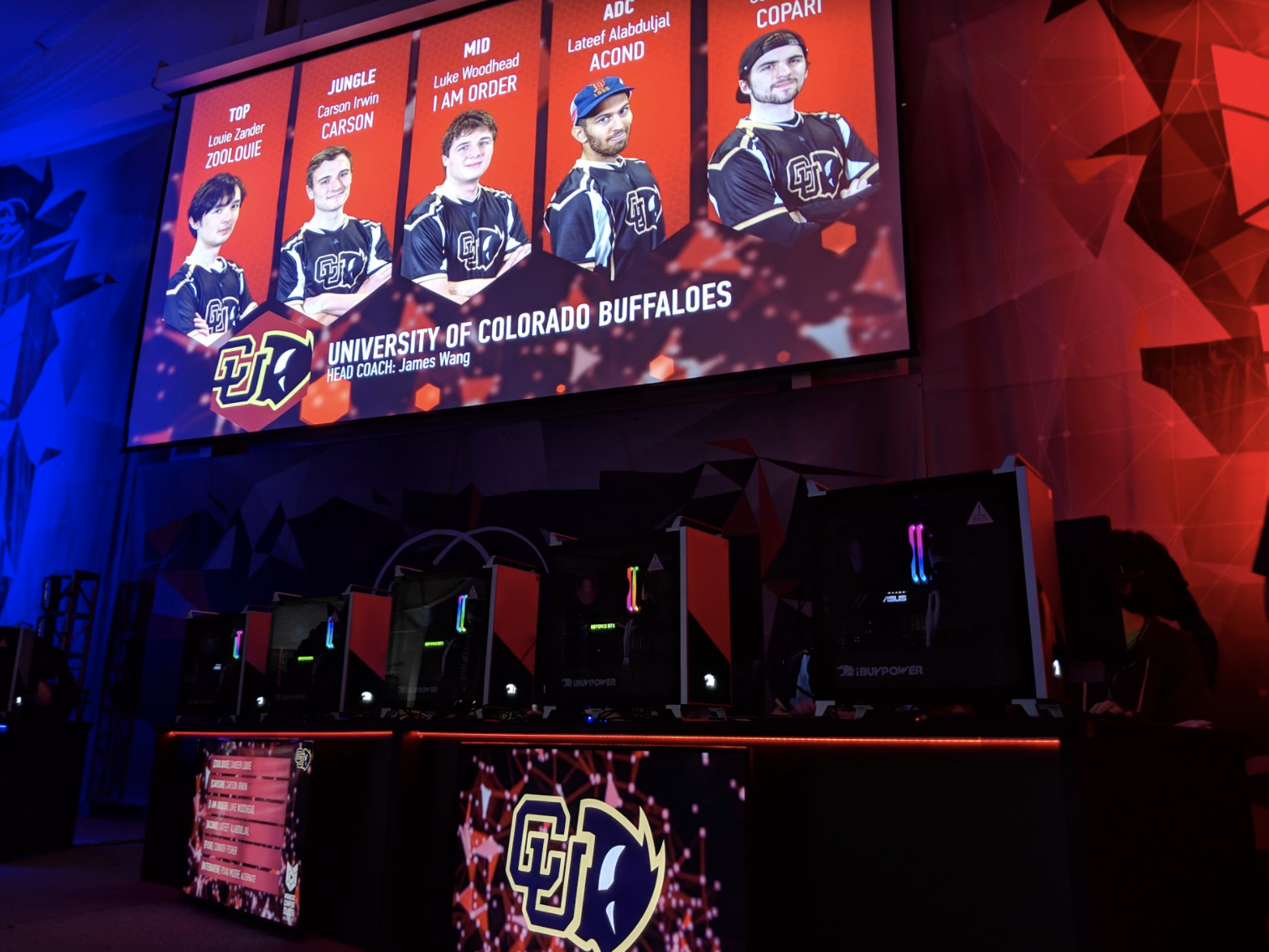
The CU Esports League of Legends (LoL) Black Team competing at the Midwest Campus Clash at Columbia College in April 2019. (Photo courtesy of CU Esports)
CU Gaming and Esports
The pandemic has taken its toll on virtual sports as well, with the CU Gaming and Esports community reeling. Although video games are played online, the CU gaming community interacted in-person more than one would expect.
Carson Giles, the director of marketing and a leadership board member for both clubs, said that real-life interaction is crucial to the community.
Before the pandemic, Giles said the gaming club would have weekly meetups in which members would play casual games such as Mario Kart. Additionally, the community would host monthly tournaments at The Connection in the UMC, with about 120 entrants per event.
In-person meetups are no longer possible, though virtual interplay remains. Giles said the switch has been fairly efficient, as the team has a community hub online with easily-accessible links to gaming servers.
The CU Esports team previously traveled to regional competitions, though they now have had to shift to more virtual competitions. Most recently, CU Esports members entered the Collegiate Valorant Conference and won the national championship in late Fall of 2020. This competition included over 60 collegiate teams across the US and Canada.
Giles said that the CU gaming community has not suffered a loss of membership because of COVID, with a staggering 2,500 members to date.
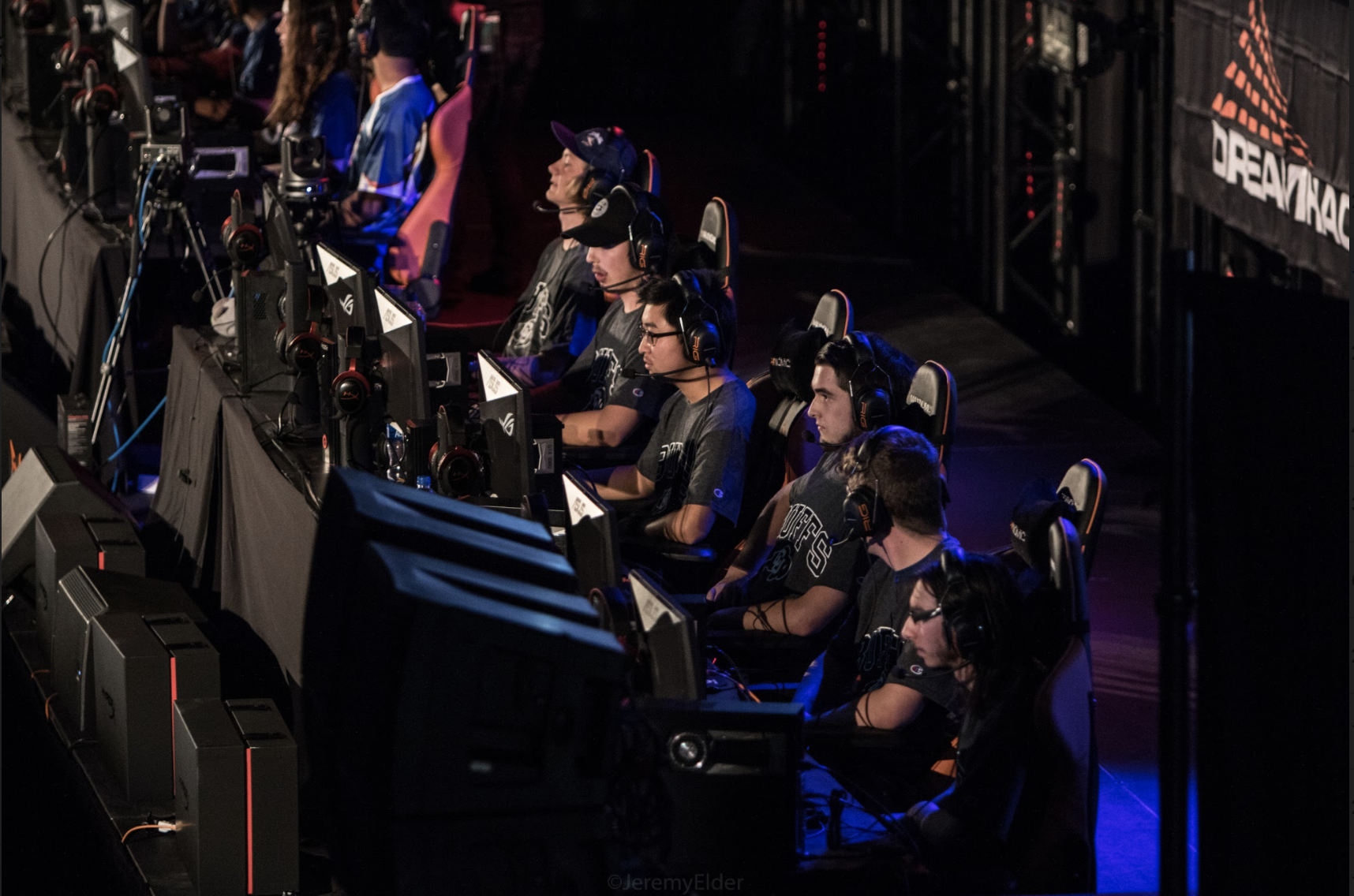
The CU Esports Overwatch Black Team competing at DreamHack Denver 2017. (Photo courtesy of CU Esports)
“Almost one in 10 students are a part of our community because you can play from home or wherever,” Giles said. He hopes to return to in-person events, though, as they bring in new members and show the impact and success of the CU gaming community to the general public.
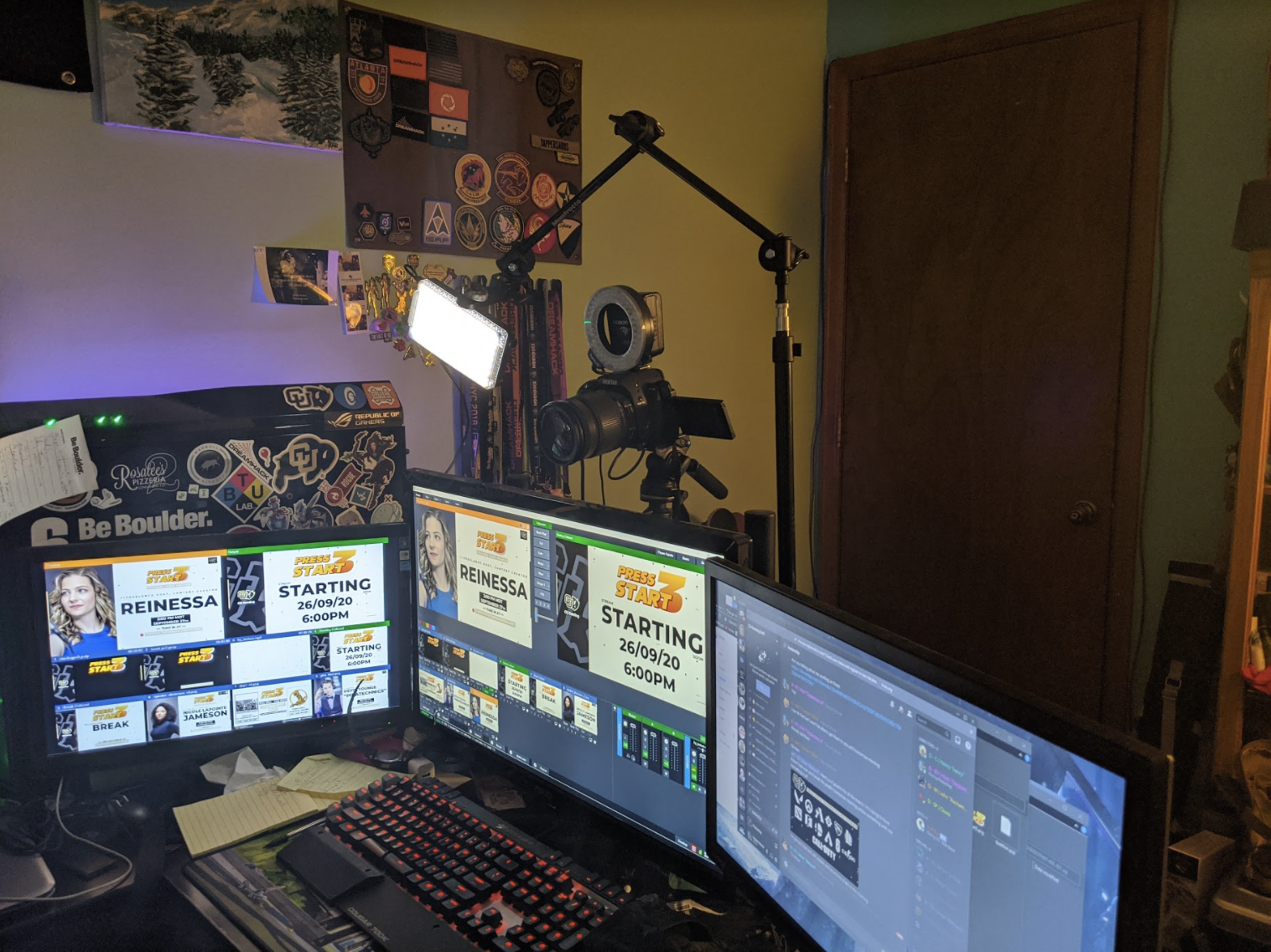
A remote livestream production setup used by a CU Gaming Production Manager for the production of Press Start 3 in Sept. 2020. Press Start 3 was CU Gaming’s largest online event of the semester which included keynote addresses from the organization’s Directors, community games, show matches against other collegiate colorado esports organizations, and special guests speakers. Special guest speakers included Devin “PiraTechnics” Younge, a CU Boulder alumni and professional esports commentator as well as Nicole LaPointe Jameson, CEO of Evil Geniuses, a top North American esports organization. The event lasted 3 days and drew in over 1,000 viewers on Twitch. (Photo courtesy of CU Esports)
COVID-19 has drastically affected the way Colorado student groups interact. Any in-person activities have become virtual. However, they continue to find new ways to utilize technology to their advantage, remaining united and keeping some semblance of normalcy and interaction alive.
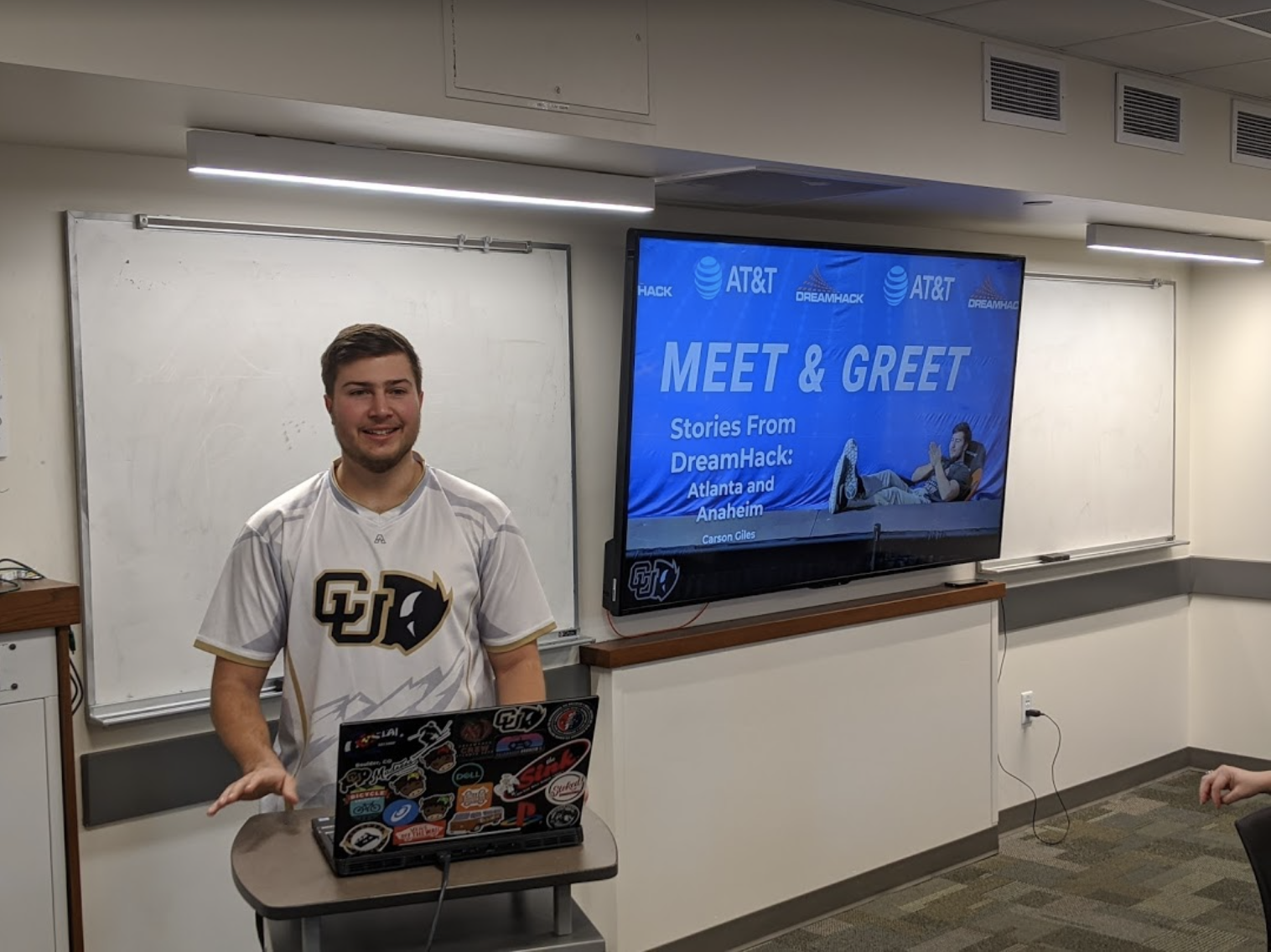
Carson Giles, CU Gaming’s Director of Marketing, giving a presentation about his experiences of working at DreamHack Anaheim 2020 to CU Boulder students and faculty in February 2020. (Photo courtesy of CU Esports)
The final moments of the CVC Fall Series 2020 Championship where CU Esports VALROANT Black Team defeated UCF Esports. (Photo courtesy of CU Esports)
A promotional video for CU Gaming & Esports initially created for the CU Engineering Immersion in Fall 2020. The total member count for CU Gaming is now 2,500 as of February 2020. (Photo courtesy of CU Esports)


Ms. Meraz-Fishbein,
Thank you for your article and for informing us about what CU Boulder athletes are adapting to these crazy times!